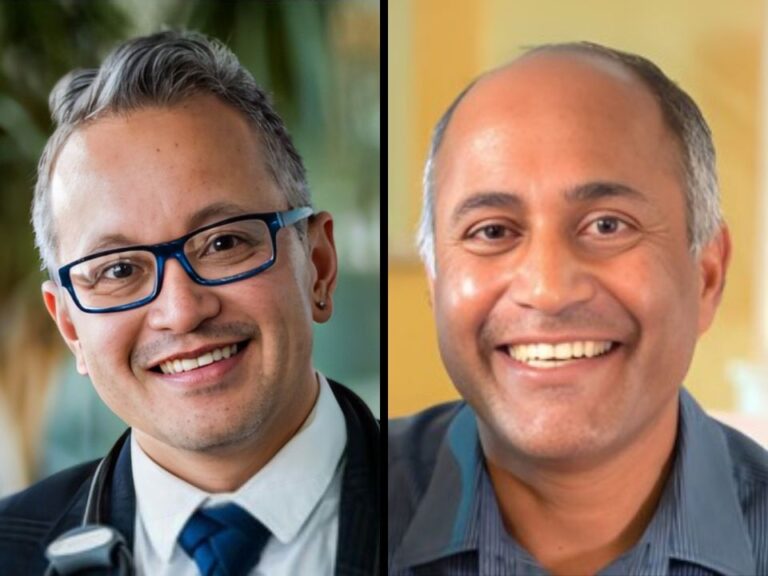

In 2018, Narjust Florez was attending a panel at the annual meeting of the American Society of Clinical Oncology, and on the stage were three physicians—one woman and two men.
The session chair, a man, introduced himself and the other man presenter by name and title. The woman was introduced by first name only.
Florez was taken aback.
“As she was being introduced by her first name—and she’s a full professor—I was thinking, then what are the hopes for me?” Florez, now associate director of The Cancer Care Equity Program, thoracic medical oncologist at Dana-Farber Cancer Institute, assistant professor of medicine at Harvard Medical School, said to The Cancer Letter in 2019.
The thought set off a firestorm, inspiring policy change throughout academic oncology. In 2020, ASCO published a guideline—“The Language of Respect”—to foster a more inclusive environment at ASCO meetings.
The following articles, which appeared in The Cancer Letter in 2019 and 2020, highlight the efforts and impact of women in oncology to drive progress toward gender equity in the field.


“Call me Doctor” How women in oncology are fighting for cultural change
Dec. 13, 2019
Editor’s note: This article refers to Florez by her former surname, Duma.
Duma was familiar with a 2017 study published outside oncology: The study gauged bias in introductions of speakers at grand rounds at Mayo, Duma’s institution at the time. (Another study later exposed this behavior in introductions at the 2017 annual meeting of the American Society of Colon and Rectal Surgeons).
Could something similar be happening at ASCO, the largest international oncology conference?
As a Latina in medicine, Duma felt this all the more acutely. “On top of being a woman, and also a minority—that really scared me.” Of 688,468 practicing physicians, only 5.2% identify as Hispanic, according to a study published in JAMA Internal Medicine in 2015.
“I’m a fellow. I’m almost done doing all this training that takes forever, and now this is stripping me of my title,” thought Duma, now an assistant professor and thoracic oncologist at Carbone Cancer Center at the University of Wisconsin-Madison.
“What is the future if this is happening right now? Is this just me?”
How pervasive is this bias, and how high does this problem reach in the field’s hierarchy?
At 9:05 a.m. CT, June 5, 2018, with the session still in progress, Duma tweeted out a question: “Do you think/observe women at #ASCO18 were more likely to be called by their first name than their male counterparts? (e.g., Instead of Dr. X).”
The Twitterverse answered. In this initial straw poll, the majority—63%—said yes.
We all have to pay attention to the power of language, because that’s what we use and that’s what we as humans respond to.
Cornelia Ulrich
Don’t call me Karen, Cheryl, Nancy, Reshma, Cornelia, Caryn, Sharon, … call me “Doctor.”
Dec. 13, 2019
A study that found gender bias in introductions of women speakers has awakened memories of decades of disrespect, women leaders in oncology said to The Cancer Letter.
[…]
Karen E. Knudsen [now CEO of the American Cancer Society and the American Cancer Society Cancer Action Network] laughed knowingly when she first read the title of the Duma et al. paper: “Evaluating Unconscious Bias: Speaker Introductions at an International Oncology Conference.”
“I mean, I sighed, and then I chuckled—because I thought ‘Oh yeah, I know this story,’” Knudsen said. “This happens all the time. it happens more frequently than it should in a variety of different formats.”
[…]
Cheryl L. Willman [now the Stephen and Barbara Slaggie Executive Director of Mayo Clinic Cancer Programs and director of Mayo Clinic Comprehensive Cancer Center] has been referred to by her first name since she was in medical school at Mayo Clinic in 1981. She was referred to by her first name during her residency at the University of New Mexico School of Medicine in 1984 as well. To this day, men colleagues often refer to her as just “Cheryl” at meetings of directors of cancer centers as well as on NCI advisory boards.
“I’ll see my male colleagues referred to as ‘Dr. So-and-so,’ and I’m referred to as my first name, despite the fact that I’m one of the most experienced and longest-serving cancer center directors,” Willman said.
One surgeon Willman encountered on cardiovascular rotation during her training holds a place of distinction in a parade of rogues:
“He would say that the women on the team should—I don’t think he ever said ‘girls,’ which was good, but he did say that the women on the team should wave palm fronds when he walked into the room with his patients—as a joke. But it’s really not a joke; right? You just realize that in that environment, you’re not going to say anything.”
Fostering a culture of gender-based respect and inclusion in oncology
Guest editorial by Narjust Florez, Christina Chapman, Stephanie Graf, Tatiana Prowell, and Miriam Knoll, June 5, 2020
“Please welcome Claudia to the stage; she will be discussing resistance mechanisms to immune checkpoint inhibitors.”
This type of introduction is frequently heard at national and international professional medical meetings. However, it embraces one of the oldest challenges faced by women in medicine—unconscious bias.
Gender bias in speaker introductions
This issue was first published by Dr. Files et al., who evaluated speaker introductions at The Mayo Clinic Internal Medicine Grand Rounds. The authors observed that female speakers were less likely to be introduced by their professional title (Dr. Last Name or Dr. Full Name) than their male colleagues, and more-so when women were introduced by men.1 When Dr. Files reported the results to the medical community, many identified with the challenge and noted similar experiences in their own professional lives.
How prevalent was this familiar anecdote within our oncology community?
As a senior scientist, I think we have the responsibility to call it out when we see it. You’re almost complicit if you don’t call it out.
Sharon Stack
Additional coverage of gender bias in oncology
- Women physicians are underrepresented in film, a study led by oncologists finds, Sept. 29, 2023
- Ukraine’s year of war has produced a generation of women oncologists trained in the West, by Darya Kizub, Feb. 24, 2023
- Narjust Duma: “To all minority fellows, residents, and medical students—you belong in medicine”, June 11, 2021
- Series: Ending Sexual Misconduct in Academic Medicine, 2021-2023
This series led to a reconfiguration of policies on sexual harassment, misconduct, and gender bias across biomedical research and academic medicine—and directly resulted in an August 2021 congressional letter that demands answers from NIH on policies to address sexual misconduct. - “1001cuts”—A GYN oncologist examines the toll of sexism in the OR, May 14, 2021
- Gender equity remains elusive in gyn oncology as women earn less, put up with more, by Sarah Temkin and BJ Rimel, Oct. 23, 2020
- Sexual harassment reporting structures in oncology are broken, The Cancer Letter survey finds, Oct. 2, 2020
- In their own words: Responses to The Cancer Letter survey on gender bias, Oct. 2, 2020
This column features the latest posts to the Cancer History Project by our growing list of contributors.
The Cancer History Project is a free, web-based, collaborative resource intended to mark the 50th anniversary of the National Cancer Act and designed to continue in perpetuity. The objective is to assemble a robust collection of historical documents and make them freely available.
Access to the Cancer History Project is open to the public at CancerHistoryProject.com. You can also follow us on Twitter at @CancerHistProj, or follow our podcast.
Is your institution a contributor to the Cancer History Project? Eligible institutions include cancer centers, advocacy groups, professional societies, pharmaceutical companies, and key organizations in oncology.
To apply to become a contributor, please contact admin@cancerhistoryproject.com.









